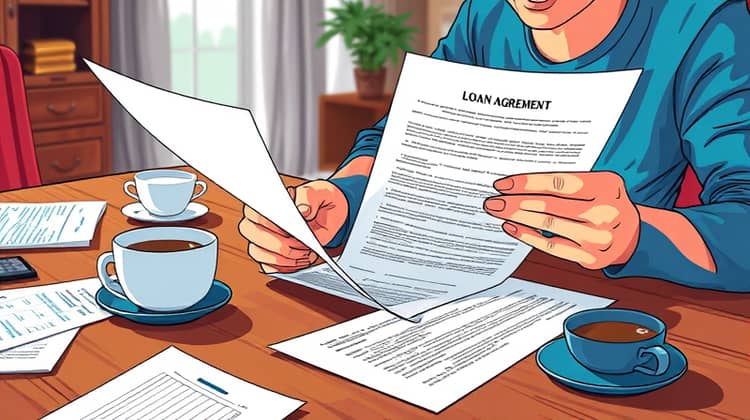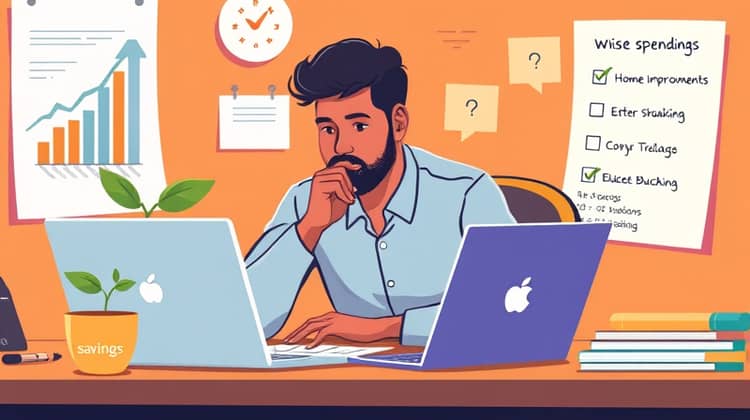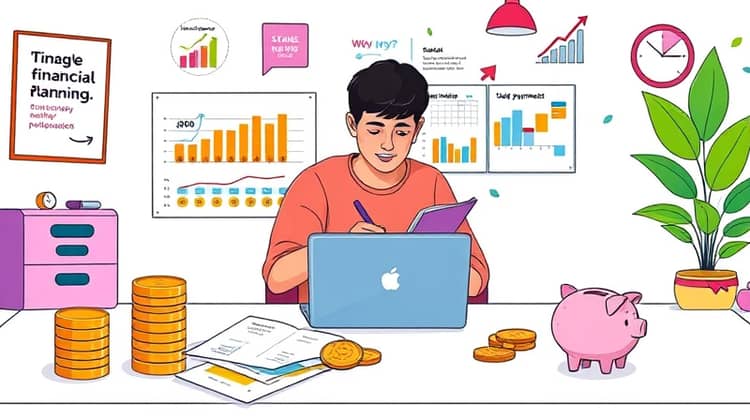When considering a personal loan, preparation is essential to ensure you make informed decisions that align with your financial goals. Understanding the steps involved can increase your chances of securing a loan that meets your needs while minimizing the risk of future financial strain.
This guide will walk you through the necessary steps to prepare for applying for a personal loan, from assessing your financial situation to planning for repayment.
1. Assess Your Financial Situation

Before applying for a personal loan, it's crucial to evaluate your current financial standing. Look at your income, expenses, and any existing debts. This will provide a clear view of your financial health and help you determine how much you can afford to borrow.
Understanding your financial situation will not only aid you in selecting the right loan but also in creating a realistic repayment plan that won’t jeopardize your long-term financial security.
- Calculate your monthly income and expenses.
- Determine how much debt you currently have.
- Assess your existing credit score.
- Identify any upcoming financial obligations.
- Consider your financial goals.
2. Understand the Different Types of Personal Loans

Personal loans come in various forms, each designed for different purposes and offering distinct terms. Familiarizing yourself with these will help you choose the right option for your needs.
- Unsecured personal loans - These loans don’t require collateral, making them a popular choice but may have higher interest rates.
- Secured personal loans - These loans require collateral, generally leading to lower interest rates but risking your asset if you default.
- Debt consolidation loans - Specifically designed to combine multiple debts into one manageable payment.
- Payday loans - Short-term, high-interest loans usually due on your next payday and should be approached with caution.
Choosing the right type of loan is critical, as it can affect your repayment capacity and overall financial health. Take your time to research and consider your options.
3. Check Your Credit Score

Your credit score is a significant factor in determining your eligibility for a loan and the interest rates you will receive. Knowing your credit score before applying for a loan can help you address any potential issues in advance.
If your credit score is lower than desired, consider taking steps to improve it before applying, such as paying off outstanding debts or correcting any errors on your credit report.
- Obtain your credit report from authorized agencies.
- Check for any discrepancies or errors.
- Pay down outstanding debts to lower your credit utilization.
- Make on-time payments consistently to improve your score.
- Consider limiting new inquiries to your credit report before applying.
A well-maintained credit score can significantly enhance your chances of securing favorable loan terms, enabling you to borrow more affordably.
4. Gather Necessary Documentation

Collecting the right documents will streamline your application process and demonstrate to lenders that you're a responsible borrower. Keeping your paperwork organized can also help you avoid unnecessary delays.
- Proof of identity (driver’s license, passport).
- Recent pay stubs or proof of income.
- Tax returns for the past two years.
- Bank statements for the last few months.
- Proof of current address.
5. Decide on the Loan Amount and Term

Before applying, establish how much money you need and for how long you will need it. This can help you avoid borrowing more than necessary, which can lead to financial strain.
- Consider your budget and how the monthly payments will fit into it.
- Factor in potential fees associated with the loan.
- Assess how long you need to repay the loan based on your financial goals.
- Think about whether you can afford to pay off the loan earlier without penalties.
Choosing the right amount and term for your loan directly impacts your ability to manage repayments, making this decision crucial to your borrowing experience.
6. Compare Lenders

Not all lenders are created equal; therefore, shop around for the best terms and conditions. Comparing options ensures you find a lender that offers the best financial fit for your situation.
- Look for reputable lenders based on reviews and ratings.
- Compare interest rates and fees from different lenders.
- Consider the flexibility of repayment options offered.
- Examine customer service and support availability.
7. Read the Fine Print

Before signing any loan agreement, it’s essential to thoroughly read the fine print. This is where hidden fees and terms are often outlined, which can significantly impact your borrowing experience.
Being diligent about understanding these details will help you avoid surprises and make informed decisions about your loan.
8. Application Process

Applying for a personal loan typically involves a straightforward process. However, being aware of what to expect can help ease the anxiety associated with this significant financial step.
- Fill out the loan application form with accurate personal and financial information.
- Submit the required documentation along with the application.
- Expect to answer questions about your financial situation during the review process.
- Await a response about your application status.
Understanding the application process can reduce stress and allow you to focus on gathering documents and providing accurate information to your lender.
9. Use the Loan Responsibly

Once you receive your personal loan, it’s crucial to use the funds wisely. Responsible management of the loan amount ensures that you’ll be able to repay it without falling into financial distress.
Avoid spending the loan money on non-essential items or accumulating unnecessary debt to safeguard your financial future.
10. Plan for Repayment

Developing a repayment plan is a key component of borrowing responsibly. Knowing when payments are due and ensuring you can make them will help maintain your credit score and financial standing.
Set aside a budget that clearly earmarks funds for loan repayment to avoid missing deadlines, which could result in penalties or damage to your credit score.
- Create a payment schedule based on your loan terms.
- Assess your budget regularly to ensure you can meet repayments.
- Set reminders for upcoming due dates.
- Consider making extra payments if possible to reduce interest over time.
Conclusion

Preparing to apply for a personal loan is a significant process that requires careful consideration and planning. By following these steps, you can enhance your chances of securing a loan that fits your needs and budget.
Ultimately, responsible borrowing and informed decision-making lead to a smoother loan experience and a more secure financial future.














